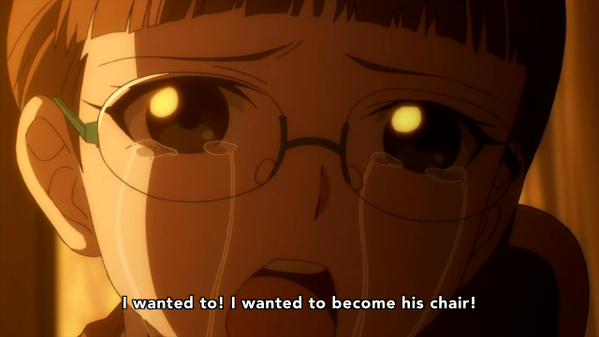Guess who’s back! Sorry for the long absence and the missed reviews. I’ve had a lot on my plate these last couple of weeks, from finishing up work on an internship to going back to school, among a slew of other minor inconveniences. But I’m ready and raring to go again! Hopefully I have these up on time for the remainder of the year, though I can’t keep any promises. It’s a bummer I missed the last couple of issues, since there’s been a lot going on and a lot to talk about in pretty much every series. It’s a shame I missed out on commenting on the first chapter of Yu-Gi-Oh! Arc V, as well as the end of the D. Gray-Man Jump Back and the start of the Psyren one. However, I am just in time to discuss the new set of Jump Starts debuting with this issue and the next, and man oh man is this a great issue to be back on otherwise!
Before we begin, I’ll briefly touch upon some Jump-related news. One-Punch Man‘s first two print volumes debuted as the #1 and #2 highest selling manga volumes in the New York Times top selling manga list two weeks in a row, a strong and promising showing that indicates overall sales will be quite successful. But in less positive affairs, Jump has axed Devilyman (whose Jump Start run I had previously reviewed), and Best Blue‘s first ranking was very poor, meaning the chances of it being added into the english Jump is pretty much nil, and it’s chances of surviving to the end of the year equally slim. It’s a shame, as both series showed promise from what I read of them, but considering how competitive and how strong the current Jump lineup is, it can’t be helped.
It’s been about a year since Viz first started their Jump Start initiative, and in that year, western fans have been treated to the first three chapters of just about every new series that’s debuted in Jump since then (pretty much the only one we didn’t get was Lady Justice, which really wasn’t a big loss). Since that time, Jump chose to pick up three of those new series for regular serialization; Hi-fi Cluster, Gakkyu Hotei: School Judgement, and Black Clover. But in the end, neither Hi-fi or Gakkyu Hotei, even despite the huge response from western fans for the latter, lasted more than six months each. Only Black Clover has remained and with it’s consistently strong showings in the popularity polls, it’s safe to say it’s here to stay for a while to come. Of the series Viz didn’t pick up, only Straighten Up!, Kagamigami, and Best Blue are left, and the latter two look to be on it’s last legs. So, after a whole year, and 16 series, only 2 of them proved to be successful. That’s a pretty low retention rate, and speaks to how fast-paced and harsh the manga business, and especially Jump, really is. It really hammers home that if a series has lasted a long time in Jump, and a long time especially popular to boot, it’s done so because it’s truly earned that success through the hard work of the mangaka and the support of it’s fans.
I’ve seen people been frustrated at Viz for not picking up certain series, and Jump for not keeping certain series. But in the end, the success of those series was up to the fans. Both Gakkyu Hotei and Black Clover genuinely elicited a huge response when they debuted, and Viz took notice of that, which is why they added them in. But they never said that they will pick up at least one new series per every set, much less more. Considering how low the odds are for your average series surviving, and how limited space is in the english Jump, that’s fair. And as for promising series being axed, that was up for fans in Japan to decide with their surveys. It’s a tough break, but it isn’t necessarily unfair. On both sides of the pacific, fans have had the power to choose what series they want to read, and what series they want to see grow. Will our new set of new series prove to be duds like so many have been, or will they find success like Black Clover! has? That’s the fun part; seeing how far a new series can and will go. And while it’s frustrating when a great series doesn’t find it’s audience (I still weep for Gakkyu Hotei), the idea that you are able to influence that outcome is what’s so appealing about Jump’s weekly survey, and why it’s so great that the english Jump can be persuaded to add a promising new Jump Start in if the surveys show massive support for them. Of course, it’s kind of frustrating when a series that has proven successful like Straighten Up! isn’t added into the english Jump, and that series that almost always rank in the bottom 5 like Bleach persist at the cost of series that do better. But there are all sorts of logistics to the manga business that result in these kind of things, and as manga fans, especially Shonen Jump fans, we have to respect and understand that, even if we don’t like it.
On the whole, I’m really glad that Viz started their Jump Start initiative, and gave us a taste of series that we may have never gotten to read otherwise, and allowing us to democratically choose which we wanted to see more of. Some worked out, most didn’t, but ever since western readers have been in almost the same shoes as japanese fans, on the battlefield of the pages, reading and judging new series from the very first week they’ve debuted in the magazine, invested in the survival and success of the series we liked, giving us to a closer experience between Jump fans across the globe. It’s unlikely the day will ever come where we have an english Jump that is a full translation of the japanese version with every series and the like, but what Viz has given us through the Jump Start program has truly elevated the global manga-reading community and experience. I can’t be happier that they’re still going strong with it, trying out almost every new series that comes out, seeing what resonates and what will stick, and giving fans a voice in seeing what they want to read, and how to build a better, stronger service. I’ll be even happier if they finally listen to that voice that’s telling them to add Straighten Up! to the lineup already, but hey, I just appreciate them introducing it to us in the first place.
With that said, let’s get on with talking about our newest Jump Start already! In this week’s Jump, Yuno is a bad loser, Joie is a bad negotiator, and both Azami and Mayuri are beyond bad fathers. Also, Nisekoi becomes a battle-manga. All this and more, After the Jump!
Weekly Shonen Jump: 2015, Issue No. 42
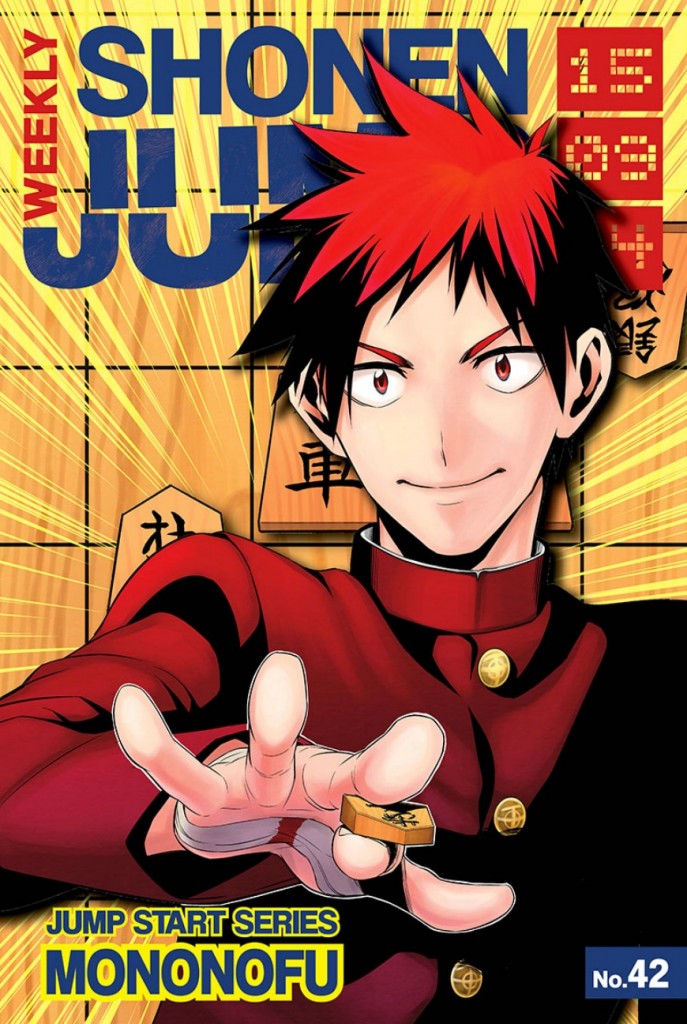
Mononofu chapter #1 – “A Single Pawn”
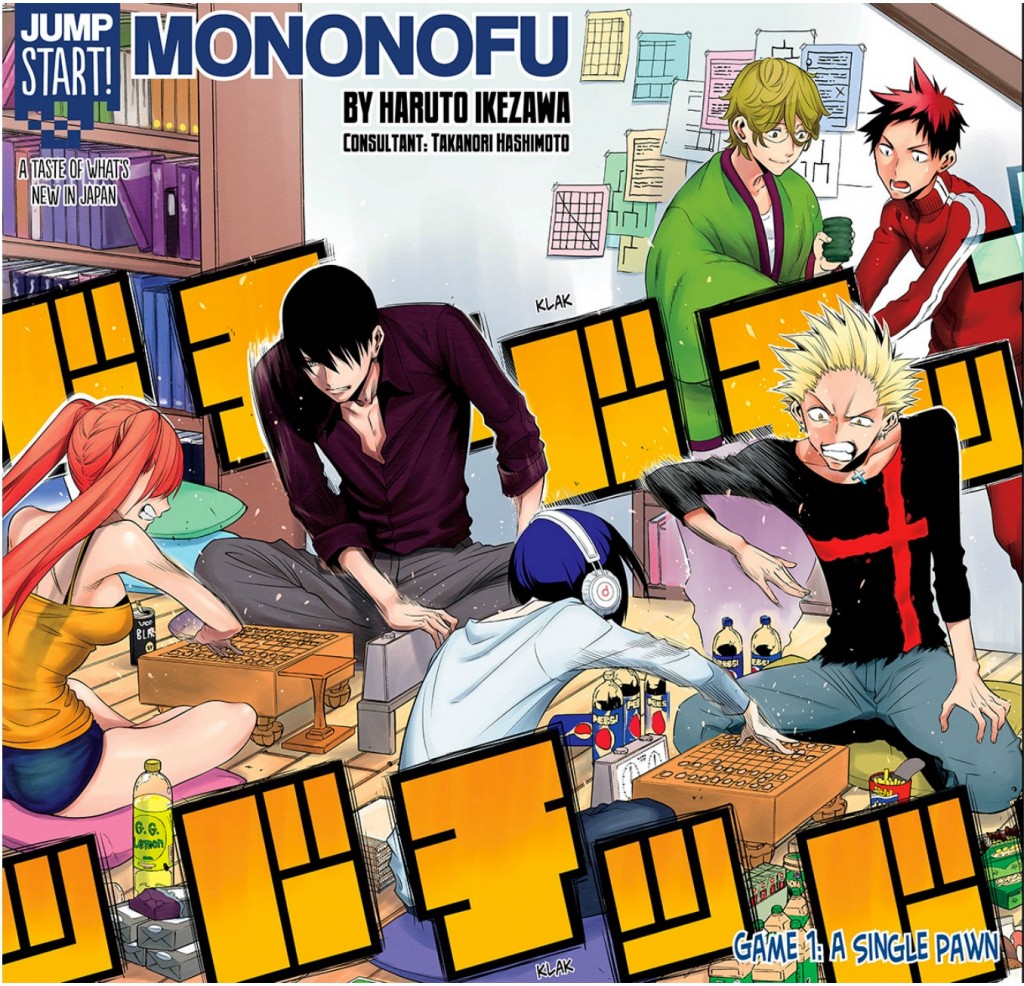
Finally, a manga about shogi! I’ve seen plenty of mahojong series, and Go and Chess have had their dues, but I’d yet to hear or see of a shogi manga before Mononofu. I’m sure there are some, but the lack of popular competition compared to other game-focused manga should do it some favors, especially since shogi is such a popular game in japan. Whether it catches on outside of japan will be much harder, considering that few westerners play the game, much less no of it. Not that it can’t be successful with western audiences, of course. Hikaru no Go proved successful back in the day, with it’s anime actually being run on television (albeit on an obscure channel) as well as Toonami Jetstream, and the manga having been serialized in the original print Shonen Jump for over 4 years, with the entire series being published in the U.S., a commendable feat considering both the lack of popularity of sports/game manga in the west, and how niche and obscure a game Go is over here. Like Hikaru no Go before it, Mononofu‘s success will not come from the game itself, but from a strong narrative and interesting, engaging characters, not to mention appealing artwork that sells the game and the excitement of playing it.
Mangaka Haruto Ikezawa had previously run a series in Jump a couple years ago, a supernatural comedy series by the name of Kurogane, which ran for about a year and a half before getting canned. I’ve never read his previous series, but it’s certainly clear that Kurogane is the product of polished artistic and writing skills by a mangaka who’s learned the ropes. The approach Mononofu has to it’s subject matter is pretty basic. This is your standard introduction chapter, with a main character who knows nothing about the sport or game learning how to play and falling in love with it, wanting to become better and be great at it. The supporting characters that guide the MC along the path are a mix of quirky, distinctly designed individuals that really only have one memorable trait that predominantly defines their character (Keishi is a hyperactive pervert, Ginga is stoic, Minato is a girl, etc.), at least until they can be fleshed out in future installments. The components here are common to sports and game manga these days, and the chapter would be a dull read if it didn’t have anything special to set apart.
Luckily, Mononofu more than succeeds in giving us a sympathetic main character that we can quickly invest in and feel for, and sells his character arc in the chapter with a strong use of visuals and imagery. Shinobu is presented as very upright, polite, shy, and insecure; he’s likable and humble, with a klutzy charm and to him that makes him amusing to watch as well. As the chapter progresses, we see flashes of his past and come to see why he is the way he is. He’s been emotionally stunted by a string of rejection in his life, repeatedly punished for his inability to respond to problems quickly, and was raised in a very strict household with distant family members ever since his mother passed away. He’s been consistently treated poorly by those around him for his mistakes and poor problem-solving skills, and has internalized this as something that’s inherently wrong with him. He’s developed a inferiority complex. He thinks he’s just a talent-less failure, who can do no right no matter how hard he tries. He thinks none of his effort will ever be rewarded; that he’s simply incapable of success. He puts himself down for his mistakes, and repeatedly punishes himself both mentally and physically for it. Shinobu is a deeply disturbed kid who is in desperate need of help, love, and a goal in life. He needs to find something he’s good at to give him confidence in himself again; something that will make him not only enjoy life, but just be able to like himself.
We’ve seen wimpy, bullied protagonists with self-depreciating opinions of themselves in shonen sports manga before, but few are as desperately in need of the sport or game they get into as Shinobu is. This is a kid who has no friends in the world, a family who doesn’t care about him, and a life full of heart-breaking tragedies, rejections, and failures that has made him hate his life, and hate himself. So what playing shogi does for Shinobu is all the more powerful. Most sports protagonists just like the sport they play, but Shinobu needed to have something like shogi in his life. Something that he likes and is good at, and something that restores his confidence and faith in himself. Something that promises to reward his hard work and effort, no matter what challenges or obstacles he might have to overcome. Something that gives him a connection with other people, a community of people who share his frustrations and challenges, but are united as friends and rivals because of that. Something that makes him feel acknowledged by others, and makes him feel like he exists. Like he matters; his life matters.
So yeah, Mononofu‘s first chapter was pretty damn heavy. There are tons of kids like Shinobu out there who feel despaired and hopeless, weighed down by the trials and tribulations of life, finding it harder and harder to make it through each passing day. I admit, this chapter hit home pretty hard with me. I’ve had similar experiences in my life that have led me to some dark places, only pulled back from making self-destructive decisions by people who reached out to and cared about me, and reignited my passion to stay the course and work towards my dreams. So the situation in this chapter really feels real to me. I get what Shinobu’s going through. I understand the desperation he’s enduring, and the sense of elation and gratitude in finding people who cared about me and something worth living for. And I’m sure there are plenty of readers, especially kids, who will connect to the character on a similar level. Especially since the art just sells the story perfectly. Shinobu doesn’t look like your traditional wimpy manga teen, he looks just like your normal manga protagonist. You don’t immediately type-cast him as having the insecurity problems that he has. Instead, you recognize him as a normal, average person first, which allows his story and his experiences to connect more broadly, and more relatably. Every emotion Shinobu shows in this chapter, from his jitters to his frustrations to his tears, is absolutely spot-on and adeptly rendered, showing the emotional depth of the character in ways that his words alone couldn’t show alone. And the moment of epiphany, the part where the game comes alive and Shinobu starts breaking down the problems, mesmerized by the game and his accomplishments, carries both the weight and wonder of the scene, not just infusing excitement into the game, but tapping into what Shinobu is feeling as he’s playing it, and the awe it inspires within him.
So does Mononofu have a strong narrative, character foundation, and emotional core that makes it stand out as an above average sports manga capable with universal appeal? I’d say it has that and then some. Mononofu takes the basic tropes and outline of your standard shonen sports manga set-up, but infuses it with a cutting social commentary and a heart-rendering character story that puts it on another level of purpose and depth than your average shonen sports series. I admit, this might not be obvious from a first glace. It took me more than one read to really unpack and process all the details and subtleties of the story presented in this chapter, but once I did, I was absolutely floored at how effortlessly yet masterfully it was executed. Mononofu has a strong foundation in which to become a great series, and the strong character arc it’s presented in this chapter has definitely won me over and made me keen on seeing where it goes. There have been many Jump Starts that I’ve found promising based on their openers in the past, but none have so quickly and powerfully endeared me to them as Mononofu has already managed to do, and I can only hope that the series delivers on the superb quality and potential demonstrated here.
Black Clover chapter #29 – “Bad Loser”
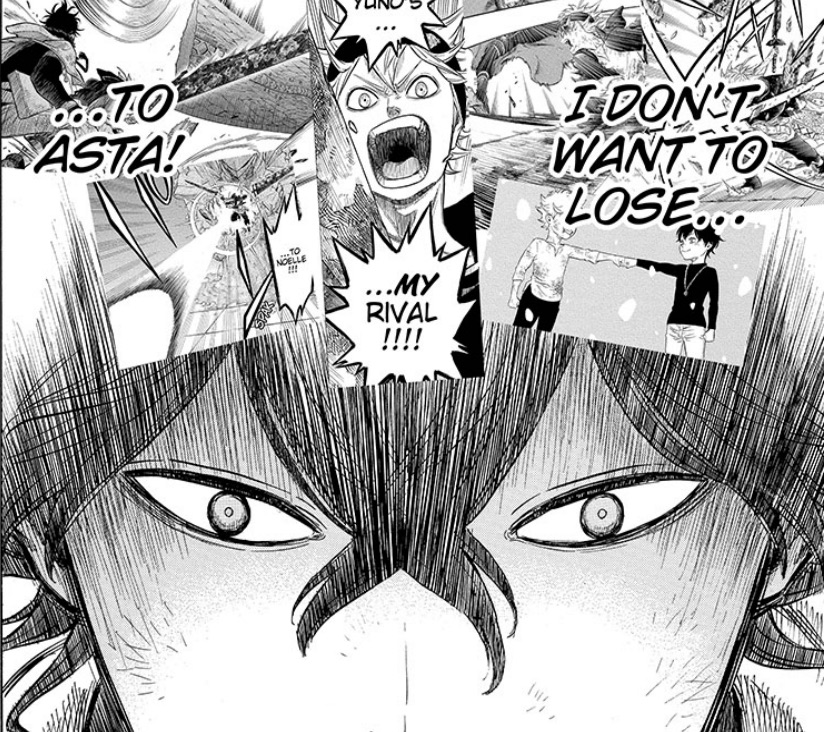
While I’ve liked Yuno from the onset as being a refreshingly supportive rival and friend for Asta despite his far-superior magical skills and recognition, many others have derided him for being rather bland personality wise and another example of a “perfect” character archetype. My agreement with those claims goes only so far as admitting that Yuno isn’t a very emotional character. Unlike Asta or some other characters in this series, he doesn’t externalize his feelings or his thoughts, get riled up, and lets them visibly show. But as we’ve seen from his inner thoughts, he is passionate; passionate about Asta. Asta sees Yuno as his lifelong friend, rival, and goal, but Yuno’s feelings for Asta are much deeper. Asta is a source of inspiration to him; he practically idolizes him. He might be goofy, make more mistakes, and be weaker than him, but Asta is someone who overcomes every obstacle and adversity he faces with determination, hard work, and a happy smile. He effortlessly proves people wrong, and does the impossible. Yuno admires that about him. Asta is not just Yuno’s rival, he’s his hero, and the source of inspiration that drives him to push past his own limits.
This chapter shows Yuno at his most desperate desperate and helpless. He’s been blinded, his body’s numb, and even his ears are failing. He’s frustrated, and he thinks about why. Guess who, and what, he thinks about. Yep, Asta. For him, it’s always been Asta. He doesn’t give a shit about what other people think about him; not their expectations for him, nor their derision against him. He does, however, resent that he hasn’t gotten stronger because of his own efforts. The wind spirit was something he randomly and accidentally picked up, and he can’t control it’s power. Whereas Asta, though maybe not has strong, has gotten as good as he is because he’s worked hard and truly earned it, at least in Yuno’s eyes. Even while he’s practically dying, Yuno’s world revolves around Asta. He’s obsessed with surpassing Asta, and proving to himself that he’s as truly strong in mind and character as him by beating him on an equal playing field; becoming the Wizard King.
So on the contrary, Yuno is a very emotional character. It’s just that all his emotions are wrapped up in his obsession with Asta, and are only externalized when he’s pushed to his breaking point, and that burning desire to surpass his friend and rival is the only thing that’s keeping him alive. And it’s though this very obsession that Yuno is able to break beyond his limits. It’s not for nothing that he channels Asta’s signature mantra, “I’m not done yet!”, before he pulls off something that should be impossible, just like Asta would. Yuno doesn’t just want to beat Asta, he wants to be Asta. And through his pent up frustrations with his shortcomings, and his own repeated comparisons to Asta since the fight with Mars, he was able to make a legendary power his own through sheer force of will. “Bad loser” indeed.
While I doubt Tabata will develop Yuno’s obsession with Asta as particularly self-destructive or unhealthy, it’s still a pretty novel and layered characterization for a shonen rival, and for me, adds a depth to the character that makes him incredibly fascinating to me. I do think that eventually Yuno will be forced to stop trying to imitate Asta and become his own person, and I’m really interested in seeing the character’s development until he reaches that point. I can understand why some people aren’t particularly invested in Yuno based on his external personality. But it’s the internal character that we’ve been given glimpses of, the true person Yuno is beneath his cool facade, that has me hooked on his character arc, and is one of the main things that’s kept me invested in Black Clover‘s development as a series.
Beyond Yuno, the revelation that there is a regular king alongside the Wizard King caught me off guard. But it does make it less obvious who the invading mages are after, as well as add a layer of potential political tension between the mages and non-mages for the series to explore down the line. This arc’s been doing well in developing the series’ core characters and it’s world to set them up for bigger and greater things down the line, and while there have been hits and misses to the execution, I’d say this chapter hit completely on the mark, and made a worthy addition to an issue chock full of phenomenal chapters.
World Trigger chapter #115 – “Osamu Mikumo: Part 13”
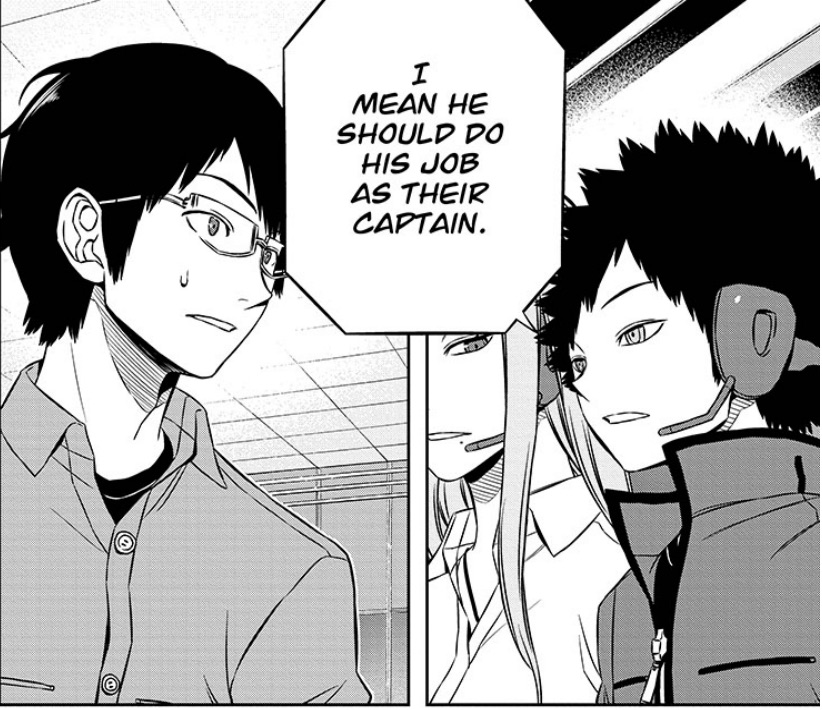
Tamakoma-2 had been warned that they couldn’t rely on Yuma alone. The entire team needed to be able to pull their own weight, and work together to take points, and win battles. Unfortunately, despite their attempts and training, they were simply unprepared and outmatched by far more skilled, capable teams. While only the aces scored points in the match, their success at doing so hinged on the abilities and support of their teammates. Which makes how lacking Osamu and Chika are in this regard sting all the more. It was a long time coming, but Tamakoma-2 luck finally ran out. They lost. Hard.
As captain, Osamu takes the most responsibility for his team’s loss, especially since he was the first to get knocked out of the fight, putting his team at a huge disadvantage from the get-go. But Kazama notes that what Osamu tried to do in the match in of itself wasn’t a bad thing. He tried something different, and he showed that he’s improved. But time isn’t going to stand still, and wait for Osamu to catch up to everyone else. Everyone has been growing and improving, and just a tiny bit of progress was not going to yield the success Osamu wanted to have in this match. His insistence to get points by himself, and his desire to show everyone he was capable of doing that, was selfish and irresponsible of him as a teammate, and especially as a captain. He missed the point of what people had been telling him. It’s fine that Osamu isn’t the strongest agent around. He needed to be good enough to support his team properly and carry his own weight. No one expected him to become a heavy-hitter for Tamakoma, and maybe combat is something that Osamu will never really be able to excel in, and he needs to be mature and responsible enough to accept that and act accordingly. As a captain, Osamu needs to not only be able to support his team, but lead them. If Tamakoma-2 is to grow and become a stronger unit, Osamu needs to make decisions that will properly address his team’s weaknesses and play to their strengths.
Kazama’s words seem to have resonated with Osamu, and while he knows he still needs to better himself, he now also knows that won’t be enough to improve his team. The team needs someone on Kuga’s level; someone with the combat talent and experience to take some of the load off of Yuma, and add to Tamakoma-2’s offensive capabilities. Which is why he asks Jin, someone who can provide such support, to join the team. But Jin has been up to a lot in the background, and I feel he’s been preparing for this moment for a long time. His interactions with Hyuse have built, if not trust, mutual respect between them, and the bet with Hyuse was the tip-off that Jin had a plan for the man in mind. Hyuse might not be on Jin’s level, but with his trigger returned to him, he’ll be a valuable teammate and asset for Tamakoma-2. In addition, his knowledge of the Neighbor world could provide Tamakoma-2 with a means of negotiating with the higher ups to send them on a away mission even though they lost the rank wars and weren’t promoted to A-Rank.
Tamakoma-2 is going to need to really step up their game and become a stronger, more efficient unit if they want to face the tough opponents and challenges waiting for them on the front lines. But as Kazama said, the Rank Wars are, if nothing else, a great opportunity to learn from your mistakes. Osamu, Chika, and Kuga have recognized their shortcomings and have learned from their losses and failures, and though their defeat in the Rank Wars might have been heart-breaking, it was also a much needed wake-up call, and I have no doubt they will evolve into a better, stronger team because of it.
Toriko chapter #338 – “Joie vs. Midora!!”
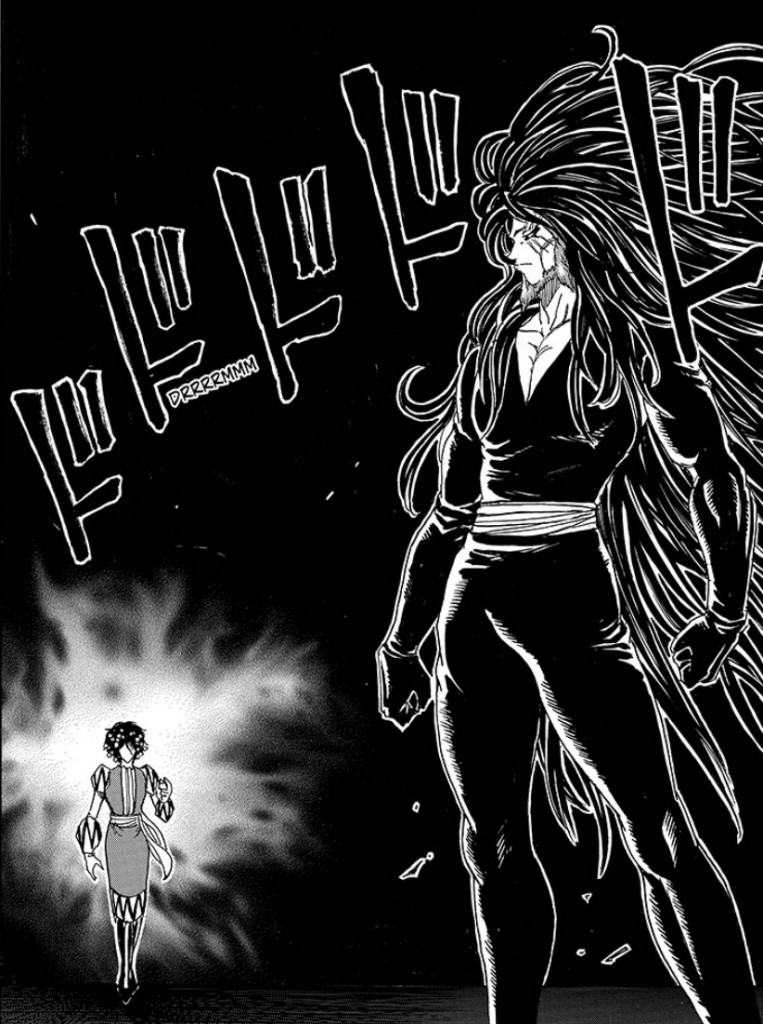
Ever since we were shown Midora’s backstory, there have been two things I’ve been eagerly waiting to know. The first is whether Joie was truly Froese, brought back to life. The second, was how Midora would react to seeing his mother, who died to save his life, and whose death spurred him on a path of vengeance and destruction to fill the void in his heart, alive and well. Nearly two years later, and this chapter answers both of these questions, as well as expand upon the revelations the last couple of chapters have brought us.
Joie is not Froese. She’s another soul, who was revived in Froese’s body in her place when she refused to assist Acacia in his scheme. And yes, Acacia is the true mastermind behind Neo and their ambitions. What does he want? Why, to eat the world of course, and explore the universe of flavors beyond it. Turns out he hasn’t just become a monster in appearance, but also in personality. Acacia’s betrayal and duplicity are an astonishing development, one that changes the perspective on past events as well as ratchets up the intensity and desperation of the current struggle to gather his full course and stop Neo. That’s something I can’t wait to see explored and fleshed out as the story progresses. But this chapter isn’t about that revelation, it’s about Joie and Midora. And for a chapter titled “Joie vs. Midora,” the two surprisingly only exchange blows at the beginning and end of the chapter. Rather than referencing a physical battle, the “fight” depicted here was purely psychological. And it’s intense a scene as any fight Toriko has ever depicted.
From the start, Joie tries to lure Midora to drop his guard. She first uses the fact she’s Froese against him, which causes the normally cool and composed Midora to briefly, for only a hundredth of a second, take pause. But Joie has studied her ingredients, and uses that sliver of a chance to her advantage, trying to strike twice with the same tactic by trying to provoke Midora with her appearance. But Midora is a hardened man, and efficient hunter. He regains his composure quickly, and counterattacks Froese, letting her know that her underhanded tactics won’t be enough to defeat him. So then Joie and Midora are locked in a stalemate. Joie knows that Midora is too powerful for her to fight without incurring heavy losses and damage, and Midora knows he has to suppress his anger and learn the truth from Joie; who she really is, what NEO was created for, and what Acacia’s plans are. The tension in the chapter is thick as a knife. Joie tries her best to suppress her desire to lash out Midora, trying to negotiate with him the best she can, to persuade him to forgo his revenge and join her side since they share a common goal. Midora, on the other hand, keeps a emotionless expression throughout the entire time he talks with Joie, even as he becomes increasingly more frustrated and infuriated by Acacia’s betrayal of him and Froese. Throughout the discussion, the tension between the two boils, until finally, Joie snaps in a moment of passion and insults Froese for being a weak and shortsighted fool. That kills it. Midora’s wide-eyed, blank stare exudes all the rage he’s been suppressing. Joie attempts damage-control, but there will be no more negotiations. The deed is done. The tiger is mad. And now he’s going for the kill.
It’s so hard to put into words just how chilling and unnerving the tension in this chapter is, and how much weight there is in each tremor of emotion. But the scene speaks so strongly of Midora’s character, and what makes him such an awesome anti-villain. The body of his mother, the person he loved and admired most in the world, is alive, with another soul inhabiting her body, trying to use that fact to exploit his emotions. His father betrayed him, and is the one who’s truly responsible for both his mother and the death of his older brother. His clam attitude betrays his true feelings; his anger, his sorrow, his confusion, among a slew of other complex feelings. But he tries his best to process this, to stay collected and focus on what he needs to do, and get the information he needs. But then Joie insults Froese, and that just breaks him. He gives such a simple, but brilliant response. And then, like a total badass, says a wicked “fuck you” line to Joie and proceeds to use his strongest attack, the Meteor Spice, the very attack that destroyed the entire ecosytem of the Human World and ushered in a global famine that affected 80% of the world’s population, right off the bat. Holy. Fucking. Shit. It’s like an explosion of all the tension and emotion pervading the chapter all at once, and it’s absolutely glorious.
Toriko has been an up and down series as of late, but when it gets it right, it freaking nails it. This was an amazing chapter, delivering both game-changing plot development, as well as a thoroughly gripping read full of suspense, intrigue, and emotional intensity through every page, panel, and line of dialogue. After a brief lull, Toriko has finally stepped up it’s game and has set the stage for one hell of a ride, and I can only hope that in the coming weeks the series will retain the same balance of quality and charisma that made this installment so successfully epic.
Food Wars! Shokugeki no Soma chapter #134 – “Black Clouds Hide the Moon”
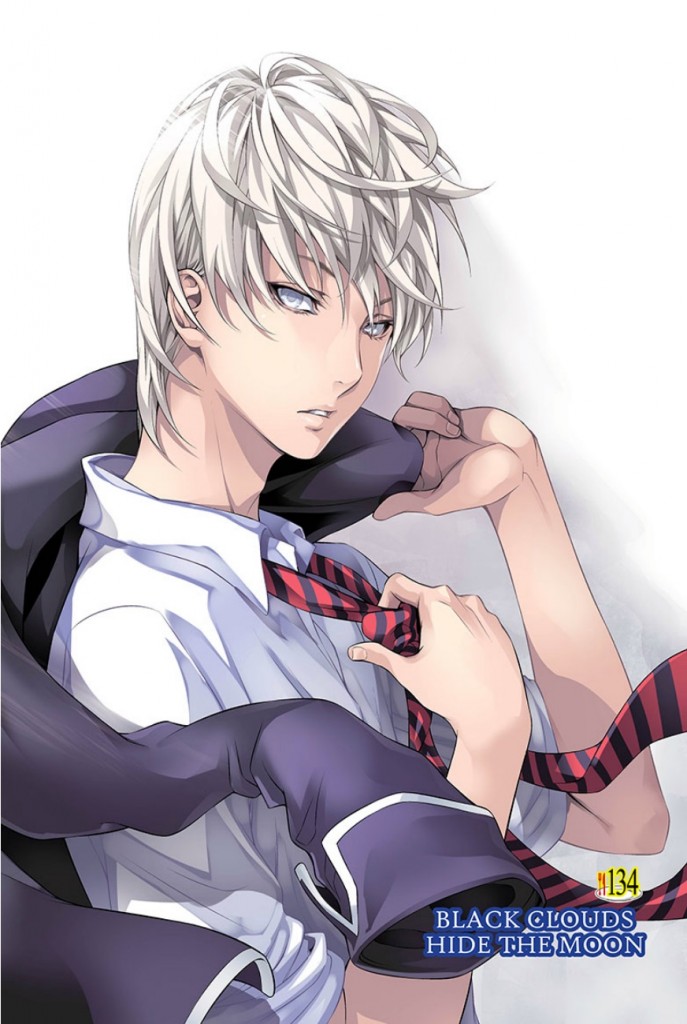
Speaking of series stepping up their game, this week’s Food Wars! was a real shocker. Azami Nakiri has quickly established himself as being an elitist; believing that true gourmet can only be enjoyed by a select few, and that the masses are unworthy of the talents of great chefs. He wants Totsuki to be a breeding ground for the elite and the elite alone. He believes that those who do not treat their craft as art, who cater to the public and not the elite, and those who don’t have the skills to service said elite and make food that is more than food, but art, should not be welcome at Totsuki.
It’s clear that he and Senzaemon radically differ in their philosophies, but the fact that he went so far to banish his own son, and prevent her from seeing his own daughter again to protect her, is a telling sign that Azami Nakiri is not just ambitious, but also dangerous. Erina’s horrified, frightened reaction towards him is certainly not indicative of a healthy father-daughter relationship. The resentful, confrontational way he talks to and treats his father is certainly not indicative of a healthy father-son relationship. The way he treats other people in general is indicative that he has one hell of a superiority complex, and treats people like tools for him to use at his leisure until they break and become useless to him. If he takes control of the institute, he will likely stifle the creativity fostered by the chefs at Totsuki, and mold the chefs that survive his purge into pawns that serve only his vision, and his idea of what true food, gourmet food, is supposed to be.
Yet, Azami’s vision of an elite culinary school is shared by the school’s most powerful administrative force. Six of the Council of Ten Masters, the top chefs of the Totsuki Institute, have voted to elect him as their new dean. This includes both the first and second seats, Tsukasa and Rindo. Considering how they were set up to be potential mentor figures for Soma and co., how likable and enjoyable their personalities are, and how skilled they are with their cooking, this revelation comes as quite a shock. With the most powerful players turning coat, change is coming to Totsuki, and the stakes have never been higher. Soma, Erina, and co. will have to really band together and support each other if they want to survive the purge to come, and fight back against the strict, stifling program Azami is no doubt going to put in place. Food Wars! always knows how to shake things up, and this time it’s done so in a big way. The story always keeps me on my toes with it’s twists and turns, and I’m eager to see how this development will affect the course of the series in the weeks to come.
Nisekoi chapter #185 – “Battle”
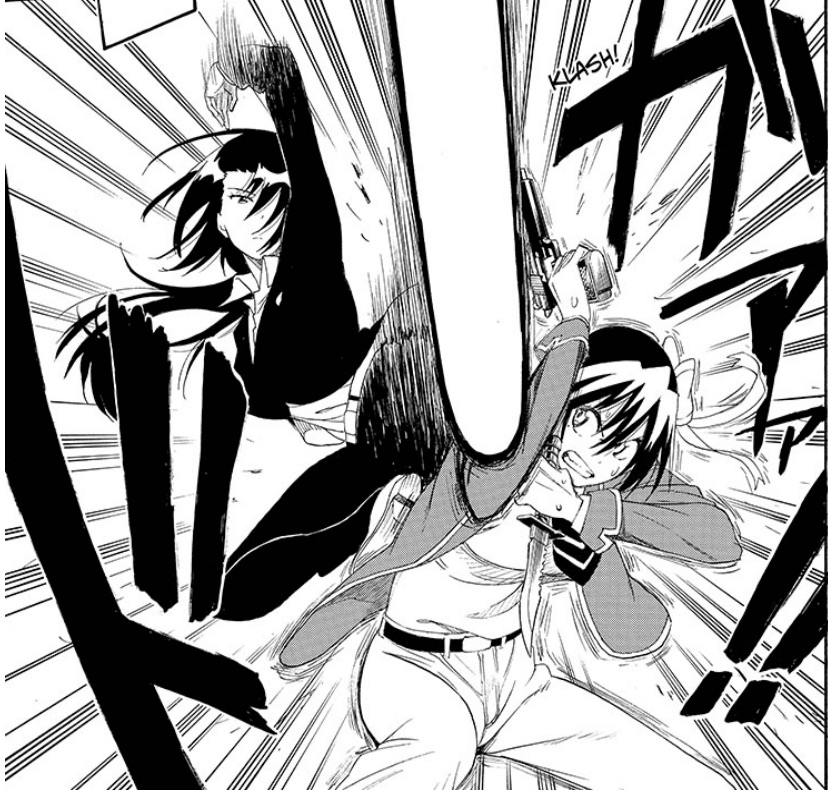
Though the setting and backgrounds of the characters of Nisekoi include yakuza, ninja, bodyguards, and police officers, we’ve never had a serious fight depicted in the series before, much less an entire chapter devoted to one. So if there’s any chapter of the series that’s deserving of the title “battle,” this is it. This entire chapter is devoted to an honest-to-god fight between Tsugumi and Honda. We’ve seen the two clash before, most recently during the Field Trip arc. But until now we’ve only ever seen short bursts of their combat, in the mist of other shenanigans involving the other characters, never as the focus of a single chapter. This chapter serves as the culmination of the long-brewed rivalry between Tsugumi and Honda, and damn if it doesn’t deliver on both and action and character level.
Seriously, the action in this chapter isn’t just impressive for it’s novelty, but because it’s genuinely well-drawn and well-paced, with all the makings of a great fight that could rival many contemporary battle shonen. Both Tsugumi and Honda rely on tactics, taking advantage of their opponents slip-ups, and staying constantly on guard. The threat both pose to one another is very palpable and real, and gives the chapter a strong sense of tension throughout as the battle alternates in favor of one another. The fight moves fast, with not a single frame or panel wasted, and the stakes ratcheting up every page it progresses. It’s a well-executed scuffle that ends as quickly as it begins, and leaves you wanting more. Seriously, who would have guessed that Komi could draw a fight scene like this so well? When he ends Nisekoi, he might want to consider making a battle manga. He certainly has the chops for one.
Both Tsugumi and Honda are shown on an equal playing field through the entire fight, and after being schooled by Honda many times in the past, it’s satisfying to see Tsugumi able to hold her own and kick ass here despite being on the defensive, much less be praised as being even stronger than Honda herself. But Honda’s goal was not to defeat Tsugumi, but to incapacitate her, and by playing into her emotions and concern for Marika, is able to do just that. Now Raku and Chitoge have to fend off the Tachibana family’s bodyguards and get to Marika on their own. But even if they reunite, and Marika’s mother somehow persuaded, Honda’s words indicate that Marika still might not be able to return. Could it be that she really is sick after all, or is there another issue, perhaps one relating to the mystery behind the locket? These are intriguing questions, but first things first. With Tsugumi out of the picture, the stakes of the rescue operation have been raised higher for Raku and Chitoge, and I can’t wait to see how they’ll fare with the odds so stacked against them.
Bleach chapter #642 – “Baby, Hold Your Hand 5 [Eyes Are Open]”
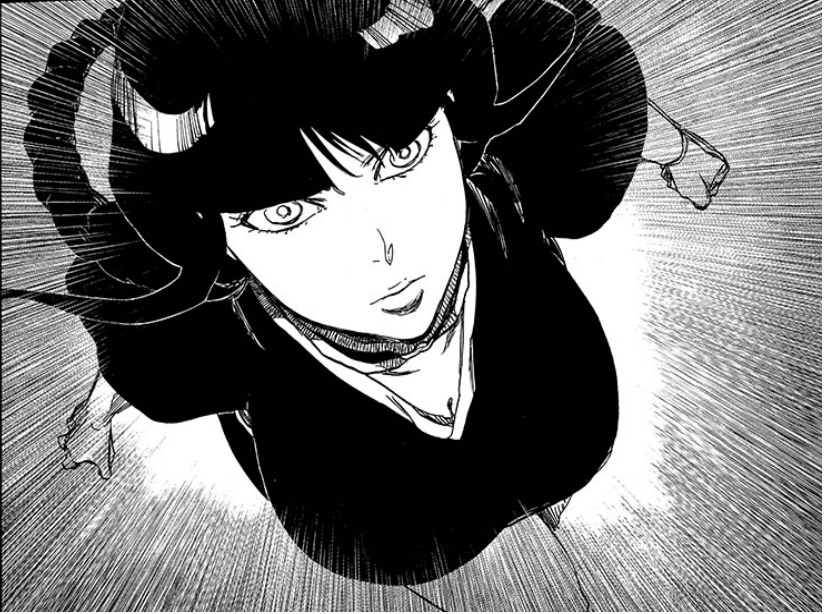
I appreciate what this chapter is trying to do. For the longest time, we’ve only known Nemu as Mayuri’s subservient bio-engineered daughter. We know that she cares for him, but we didn’t know why she would be so loyal to such a cruel, abusive man. We didn’t really know much about why Mayuri created her, and what he really thought of her. This chapter attempts to contextualize and deepen their strange father-daughter relationship. Mayuri dreamed of creating artificial life, and Nemu was his seventh attempt. Her immediate predecessor died tragically young, at only two years old, and for a time Mayuri had thought that was as long a lifespan an artificial human could have. So when Nemu, his seventh attempt, outlived that lifespan, he was overjoyed. He had succeeded in creating a true artificial human, one that would grow up, learn, and evolve. It was a dream come true; he was living a dream come true. But Mayuri isn’t one for emotion, and as Nemu became more self-aware and adept at understanding emotions, he distanced himself from her. Yet, at the same time, he started calling her “Nemu” instead of her code-name; in a contradictory way, the more he distanced himself from her, the more he treated her like a daughter. For Mayuri, Nemu isn’t just a mere thing that he created. She’s her own person, one that he knew would one day become independent, and beyond his control. An artificial being with free will. A genuine living person with emotions and the capability to learn. A true masterpiece of his science and craft, one that he couldn’t be prouder of.
At least, that’s supposed to be the takeaway of their relationship from this chapter. It’s an attempt at giving depth to a previously unclear and shallow relationship. I can appreciate that. But it doesn’t work. Not at all. Why? Because it doesn’t line-up with how the characters have behaved in the past, at all. We’re supposed to believe Mayuri’s thinks of Nemu as his masterpiece? That he’s proud of her; that he loves her? That like any father, deep down, he was afraid of the day she would become independent and leave him, which is why he kept her dependent on him but stayed distant? Okay. Let’s go back to Mayuri’s first major appearance in the series. His fight with Uryu. Ignoring the despicable things he said and did, which included sacrificing his own subordinates without batting an eye, for one thing, let’s hone in how Mayuri treated Nemu back then. He used her as a prop and stabbed through her chest to strike at Uryu. When she let go of Uryu, he beat and berated her for disobeying his orders to hold onto him no matter what. When Nemu told him she was in pain and couldn’t breathe, and needed medicine, stomped on her, pulled her by the hair, and bashed her against the wall for being “cheeky” with him and that basically as her father he knew what’s best for her and could do whatever he wanted to her. Then, when he tells Nemu to kill Ishida, and she can’t because she’s lying half-dead and in pain, he beats her again and calls her useless and a piece of defective garbage.
And now you’re trying to tell me that, while he was doing all of those horrible, awful things to Nemu, all along he was doing it because he loved her? He beat her to the point she was almost dead because he cared about her safety? He called his masterpiece a piece of trash despite supposedly being proud of her? No. That’s bull shit. The entire attempt to try and give Mayuri some semblance of humanity, and his relationship with Nemu some warmth of genuine emotion, is a whole load of garbage. It’s not consistent with how Mayuri’s treated her before, and trying to characterize a despicable, violent relationship like the one between Mayuri and Nemu as anything positive is absolutely sickening. The intentions of this chapter aren’t bad in of themselves, but because of how awful the relationship between Mayuri and Nemu has consistently been, it’s emotionally hollow, and at worst, a disturbing attempt to justify an abusive relationship and Mayuri’s monstrous actions against her as fatherly and sympathetic.
The one positive aspect of the chapter lies in the action, as it’s pretty cool to finally see Nemu not only fight, but really kick ass, and a pleasant surprise to see Mayuri lose a fight, and be shown up by his subordinate. But the chapter can only be enjoyed on those lines, and not for it’s supposed emotional center, which makes it only shallowly enjoyable at best. As usual, Bleach proves to be the only black stain on an otherwise fantastic issue, but hey, at least Kubo sorta tried this time. That counts for something, right?
My Hero Academia chapter #58 – “Internship’s End”
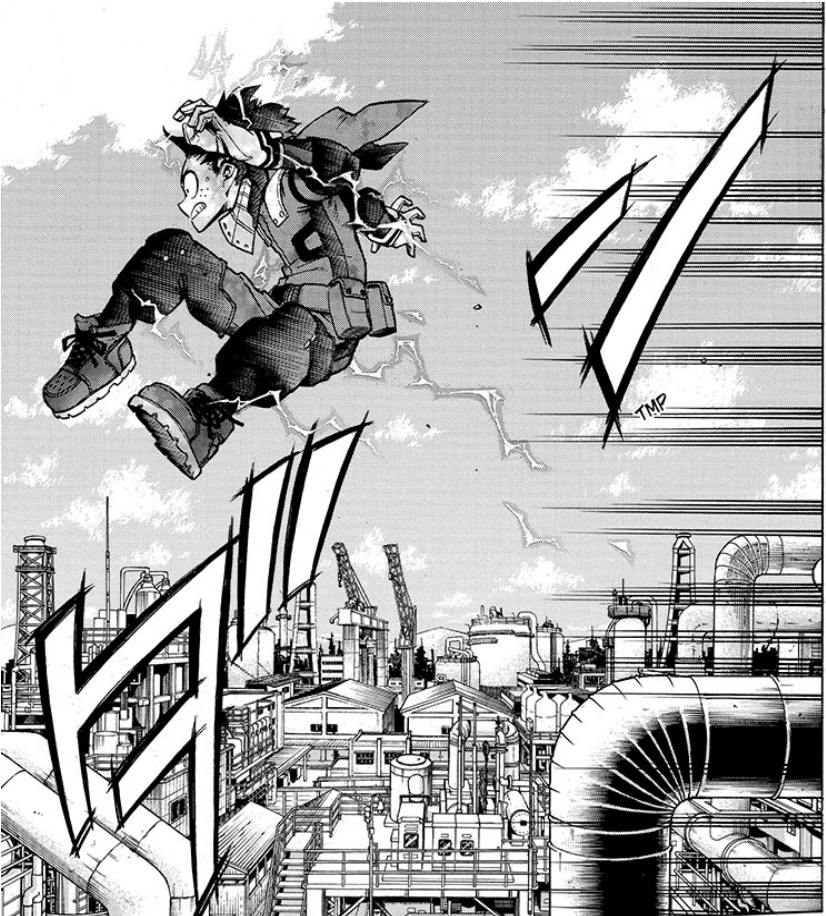
I’m rather sad to wave farewell for Gran Torino for the moment. With his relationship to All Might and the previous user of One For All, as well as the implication he sought a hero license for reasons other than being a hero, the character clearly has a rich past and history to explore, and I can only hope that it will be brought to light in his future appearances. But with the internship over, it’s time to see how the character’s have grown from their experiences. Bakugo, sadly, doesn’t seem to have learned much from Best Jeanist other than good hygiene, and his reaction to Midoriya’s improved abilities in this chapter indicates that his inferiority complex will continue to fester for a while yet. On the flipside, Ochako seems to have become much more confident and battle-hardened from her training with the battle hero, and it should be fun to see how she’s improved her combat abilities. The rest of the characters seemed to have rather uneventful internships, the exception of Mimeta, who seemed to have some kind of traumatic experience from working with Mt. Lady. In the end, the highlights of character growth are through Ida and Midoriya. Ida has accepted that the Hero Killer has his supporters, but he is firm in his belief that despite his intentions, his methodology was wrong, and that’s that. Ida’s given up on his revenge, now seeking just to do right by others and become a true hero, to save other from suffering in the same way he and his brother did. It’s a small, but great moment of growth for the character, showing that he’s truly learned from his experience, and has become a better person for it.
Midoriya steals the chapter with his impressive use of One For All, showing off to both the other characters and the readers that he’s really grown under Gran Torino’s tutelage, and has become able to use his power much more safely and efficiently. While he still hasn’t perfectly made it his own yet, and has to grow in areas as well, he’s becoming more capable and confident by the day, and with All Might’s time running out, he couldn’t be more relieved. With the strides Midoriya’s made, All Might will be able to confide his secrets and the threat of All For One with Midoriya more confidently, and work together with him to prepare him for the day he’ll have to face that power alone.
I feel there isn’t much to really dig into this chapter, but that isn’t because it’s lacking in content. Rather, it’s made up of many little small character moments, ranging from sweet, to cool, to humorous, and it’s hard to touch upon all of these without just restating plot details, as opposed to genuinely analyzing a concept, characters, and themes. This was a transitional chapter, one that showed off Midoriya’s growth, and the promise both Gran Torino and All Might see in him as symbol of peace. It was a fun, great read and another winner from the series, and I’m looking forward to next week, and learning more about One For All and All For One.
Psyren chapter #2 – “Paradise”

The first chapter of Psyren took a focused, deliberate pace that took the time to properly establish and characterize Ageha as a protagonist and really get us to know him well. The focus stayed on him as a character, and as the chapter and the mysteries and ominous tone unfolded, we became more invested in the story of the series because we started to care about him, and his attempt to rescue his friend with the Psyren card. Whereas most series would have probably gotten to the other world within the first chapter and given us a big battle to accompany it, the twist only came in right at the end of the first chapter.
My point is, part of what makes Psyren standout in it’s genre is the careful way it allows it’s mysteries to unfold. It prioritizes building up the characters, the tone, and the world first before delving into any big fights. It presents mystery after mystery, letting you be sucked into what’s going on, really wanting to see where things are going, rather than shoving it’s entire premise and storyline at you right from the start. With this second chapter, we still don’t know where exactly Ageha is, what Sakurano knows, what the monsters inhabiting the area are, or what the game of Psyren is and it’s various rules and purposes are. The series feeds us these things little by little. It gives you enough to satisfy you for the moment, but leaves enough for you to want to know more and come back next week. That’s a lot harder to write than you might think, and speaks to Iwashiro’s strengths as a mystery writer more than anything. And it’s that sense of mystery that’s really appealing about Psyren, and why, despite not being that battle-heavy so far, it kept people coming back.
There’s a lot of clever foreshadowing in stray lines and character moments throughout this chapter that are pretty interesting, and amusing, to notice on a re-read. I think one of the most interesting aspects of how Psyren keeps you guessing about things in this chapter is with various bits of misdirection. Just when you think the chapter will go one direction, like when the fat asshole guy starts shouting he’s going to take the reward for himself and everyone gets riled up, you might think that the group’ll start targeting Ageha and Sakurano as he fears. But out of nowhere, Asaga punches the dude and the conversation shifts elsewhere. The chapter in general moves from one moment of surprise to another, which keeps you on your toes, trying to guess where the story will go, but consistently uncertain. Even when it comes down to the characters presented in this chapter, it’s unclear whether this group of characters will be around for the long haul or not. Sure, you can assume Asaga is a safe bet considering he gets the most screen time, but because we don’t know the stakes, the rules, and the dangers of the game yet, for all we know they’ll be stuck in this world for a while and this will be our group of main characters for multiple chapters to come.
Psyren‘s initial chapters thrive on the mystery and uncertainty in it’s world and concept. You don’t know what to expect, but because you care about the central characters, you want to find out. It sounds so simple, yet, so many battle manga are incapable of presenting as strong a foundation and sense of purpose as Psyren does just two chapters in. Psyren continues to prove an even more rewarding read my second time around, and despite having read it all before, I still find myself as engaged in seeing the story develop as I did when it was new to me.
Final Thoughts:
My god was this an amazing issue. With the expected exception of Bleach, every series in this issue put out one phenomenal chapter after another. There was pivotal plot development, character development, and intrigue galore. Not to mention Mononofu proved to have what is possibly the best opening chapter for what might be most promising Jump Start there’s been since the initiative started last year. If there’s an underlying theme to this week’s issue, it’s growth. Learning from your mistakes, evolving because of them, and becoming stronger and moving forward as a more experienced and better person for them. From Shinobu overcoming his inferiority complex, to Yuno tapping into incredible power through sheer determination. In Osamu’s recognition of his shortcomings and his reaffirmed priorities what to do as a leader, and Midoriya showing off his refined skill in using One For All. Even in the twisted schemes of Joie and Azami to evolve themselves and their organizations to new extremes, to Tsugumi’s rematch with Honda, and even Nemu’s evolution as a independent, capable combat force stronger than even her creator. In just about every series in the issues, there were characters who either attempted or succeed in growing stronger physically, mentally, and as people. Some were successful, some weren’t, but that desire to get stronger, to be better, it’s not just a very shonen trait, but a very human one as well. It’s because it’s a very human desire that it’s often an aspect of shonen manga people admire and relate to, especially when executed in a smart, meaningful way. It’s a great theme to characterize a great issue, and I can only hope next week’s undoubtedly massive Jump will prove just as strong.
Best Manga of the Week:
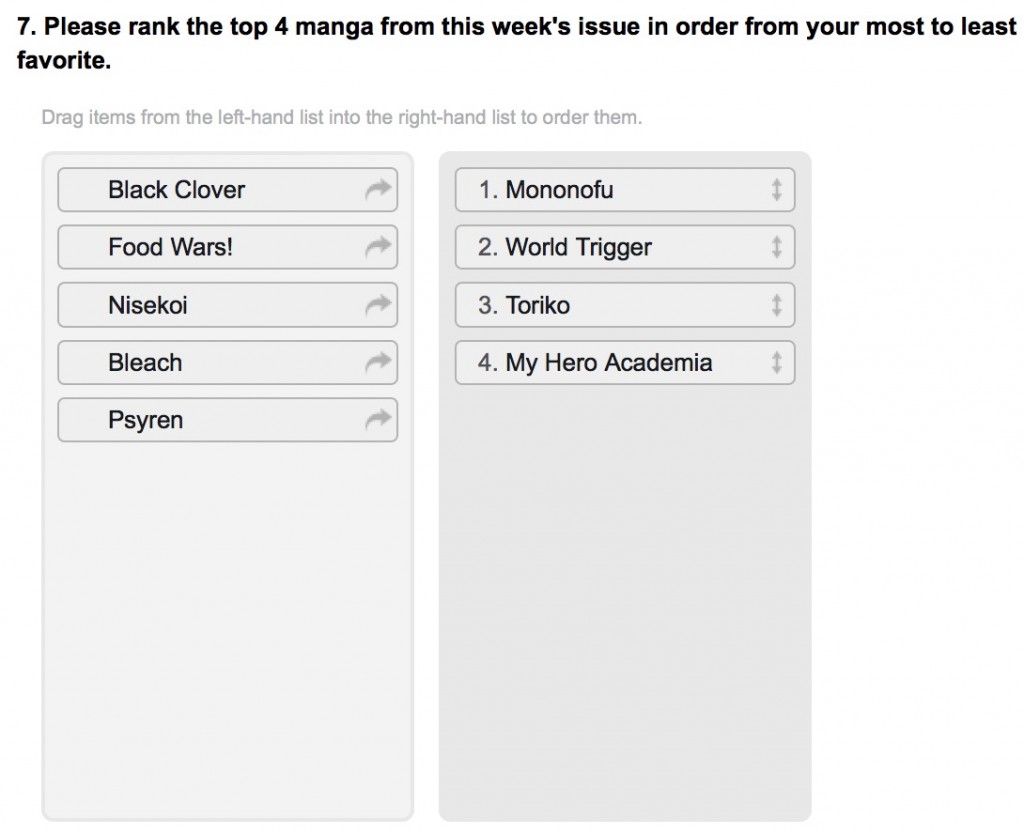
1. Mononofu – Choosing the top 4 for this week’s issue was extremely hard, but I just knew I had to give Mononofu it’s dues and bestow it the honor of the #1 spot. A fantastically written debut chapter with a lot of character and a surprising amount of depth, Mononofu is the first Jump Start that I’ve ever given a #1 ranking to it’s first chapter, and I’m absolutely looking forward to reading more.
2. World Trigger – A phenomenal and fitting conclusion to the Rank Wars, with promising growth to come for Osamu and Tamakoma-2 as whole, and an intriguing development that may lead either Jin or Hyuse to join the team in the near future.
3. Toriko – This chapter delivered on two years of build up with delicious tension, game-changing plot developments, and some awesome moments of badass from the series’ baddest baddie. Leave it to Toriko to make a mere conversation as incredibly engrossing and exciting as any one of it’s signature crazy, bloody brawls.
4. My Hero Academia – I almost gave this spot to Nisekoi for the sheer craft of that fight scene, but since Nisekoi isn’t a battle manga, that felt inappropriate. But either way, my simple analysis for this week’s MHA chapter understates how much I really enjoyed it. It was a wonderful showing of great character moments and growth for Midoriya, and an excellent transition from the Internship arc into the developing conflict between the powers of One For All and All For One.
Line(s) of the Week:
Midora: “Don’t get the wrong idea. I’m not getting emotional. I just…have one thing to say to you. It’s been since long ago… that you and your lot have been…treading on the tiger’s tail.”
– Toriko
Panel(s) of the Week:
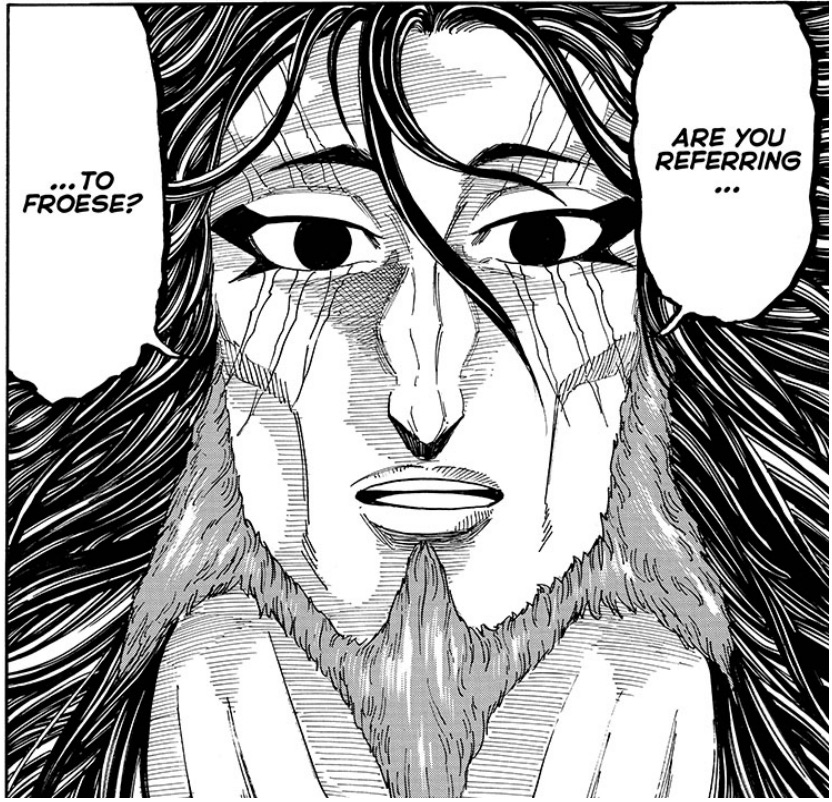
Page(s) of the Week:
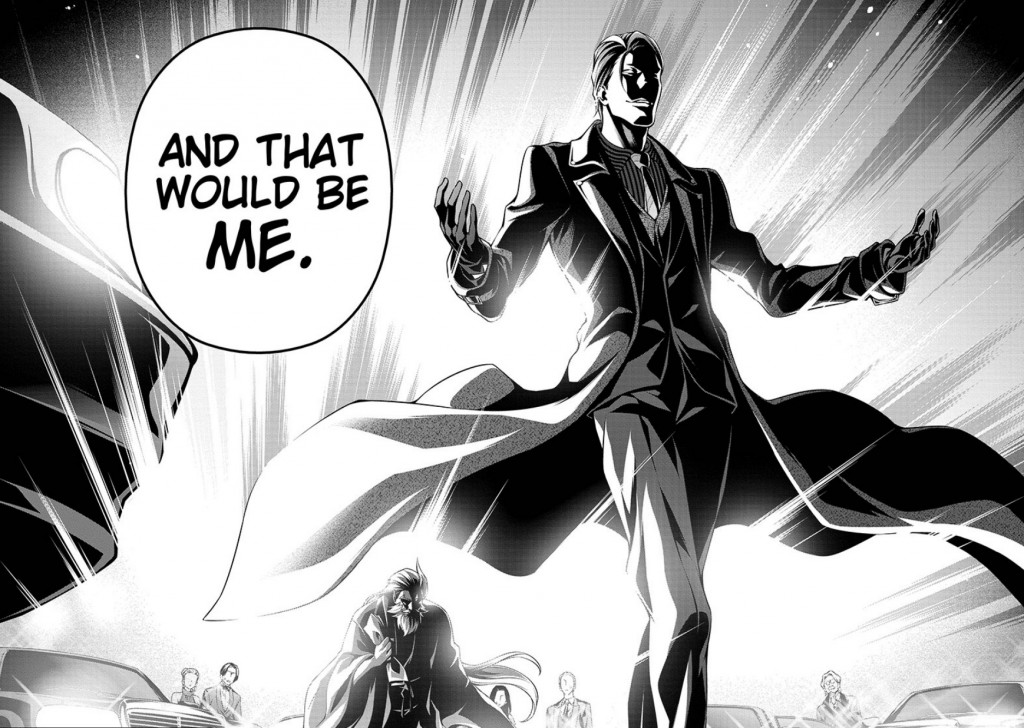
And that’s it for this issue! Hopefully I can have these be more on time for at least a couple of months, if not permanently. Either way, I’m looking forward to what’s in store for these series in the coming weeks, and I hope you are as well. So until next time, set a goal, work hard at it, and never give up even if life gets you down, and I’ll see you again after the jump!
